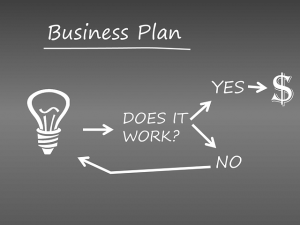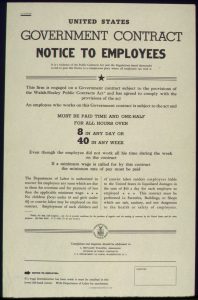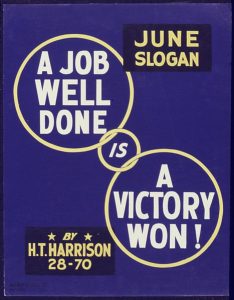
In my relatively short career, I’ve been fortunate to work in a variety of roles within different frameworks (freelancer, startup, in-house and a contract employee). Whilst we sometimes hear people discussing what specific roles are like, we don’t often hear about these different frameworks and how they compare. I thought it might be interesting to share my observations on what pros and cons I found in each of these frameworks. So whether you’re a student looking for your first opportunities or a seasoned pro looking to transition roles, I hope some of these insights prove useful.
What follows is going to be subjective and very much a result of my personality and lifestyle. A pro for me might be a con for someone else, so I invite you to comment below and add your voice to the conversation. What work experiences have you had and what aspects did you like/dislike? Here are mine…
Independent Freelancer
composer, sound designer, voice actor

The good…
The broad range of projects: As a freelancer, the range of projects I get to work on excites me. They cross multiple genres and mediums whether it be film, games, museum installations or live performance.
The ability to specialize or not: I love to work both as a composer, sound designer and to do some voice-work on the side. In a freelance capacity, I haven’t had to sacrifice one over the other (though if I ever decided to, I could).
Self-representation: Being a freelancer requires that I have some web presence to represent myself and my work. I have more to say on this aspect of freelance work, but I do appreciate having control over the image I project and how it represents me. I also enjoy having something that stands as a testament to the work I’ve done. Should I ever feel narcissistic, I can go back and review my past work.
Manage my own time: Personally I like taking control of my own time and managing it as I see fit. I know there are limits beyond which another hour at the computer won’t yield much in the way of results, and other times I know I need to work though breaks and have lunch at my desk because I’m having way too much fun. Being able to maintain my own work/life balance is certainly a plus, though it can be dangerous if I let it weigh too heavily to one side or the other.
Accomadate other commitments: If there’s a family emergency or if I need to help a friend move, go to the doctor, whatever it may be, it’s generally a little easier to make time for these commitments as a freelancer. If worse came to worst, I know I have a network of colleagues I could turn to if I had to hand off a project, thankfully that hasn’t happened.
Client relations: I love communicating with my clients and discussing both their work and how I might contribute to it. I enjoy being in direct contact with the designers, directors, whomever I’m working for. It makes me very happy to see them react when I’m able to solve their creative problems through music and sound. Having this direct line of communication also allows me to find out exactly what it is they like/dislike about what I send over to them without having to go through a middleman.
Creative control: Now whilst a great deal of my direction comes from my clients, there’s inevitably going to be some creative decisions that need to be made at my end of things and I enjoy this element of my freelance work. I love it when a client comes to me with a problem they’ve identified, the end result they are looking for, but no real idea of how to get there. It allows me to think about my work at a higher level than purely as composition/sound design, as it becomes part of the design of the overall work.
Tools and system design: I know my own strengths and weaknesses when it comes to my compositional and sound design work, so it’s great when I’m using a familiar toolset on my own system with the ability to add new elements in as I see fit.
The not so good…
Fluctuating workload: This is an obvious one to anyone who’s done freelance work. There are weeks you’re finishing up three projects on top of each other and weeks when projects are just getting started without much for you to do. Whilst I do enjoy the excitement of not really knowing what’s coming down the pipeline, it can be a little frustrating to find yourself with too much or little work.
Self-representation: Now I mentioned this as a positive, but it’s a double-edged sword for me. Whilst I enjoy having control of the image I project out into the world, more often than not, I’d rather not self-promote too heavily. It’s not that I lack confidence, more that I despise showboating and don’t wish to add too much to the noise that’s already out there.
Budgeting: Budgeting is a tough component to freelancing. I don’t believe in hourly rates for what I do as either it forces the client to pay more if I’m slow, or I get paid less if I’m efficient, both of which are counterintuitive. As such, I inevitably do either a flat rate or itemized budget. I don’t mind putting a budget together, but I find it’s difficult to place an appropriate value on your work, especially without knowing what the whole budget is for the entire project and what the project will end up looking like at the end of it all.
Limited resources: As a sole individual, I only have my own tools, expertise and creativity at my immediate disposal. This can always be supplemented by hiring additional help, musicians, studio time when needed, but it often requires stretching an already limited budget if it isn’t factored in at the start.
No delegation: Sometimes it would be nice to hand off certain tasks so that I can focus on what I do best, but this isn’t an option as a freelancer. I’m inevitably responsible for everything. Templates, macros and productivity apps can help, but an extra pair of hands can’t be matched.
Business / legalities: Being a freelancer is kind of like running your own business. You need to do your own budgets, contracts, taxes etc. That’s why we got into the business right? Yeah, I thought as much.
Startup Audio Company
post-production with a focus on game sound

The good…
Diverse skillset: By teaming up with other individuals and forming a company, you get a broader skillset as each person brings their own experience and background to the team. This can help when working on a broad range of projects requiring disparate styles of music or sound design.
Diverse resources: Whether it’s pooling together studio gear, investment funds, clients or business contacts, these are obvious benefits when working alongside others within a company.
Professional appearance: The difference in appearance between a sole individual working alone to a small collective of people working together under a shared name is significant. It can help give an added sense of professionalism and security to clients.
Collaboration: I love collaborating with others on projects. Working with other composers and sound designers can help generate new ideas, allow you to hear your work with a new set of ears, broaden the sonic pallet and share the workload.
Larger projects: Having a team to work alongside means you can take on larger projects than you might otherwise if you are a freelancer. Some are very time intensive while, others span multiple skillsets.
Building a company: When things go well, it’s a joy to build a company and share not only in the success of the projects worked on, but in the growing entity itself.
Sharing work: One of my ruling principles early on was to try and identify opportunities to pull other people onto projects I was working on. I love working alongside others and I firmly believe in sharing credits around as much as possible, something that’s easy to do within a company.
Group growth: It’s fun to see your own skillset and abilities improve (hopefully) over the years, but it’s even more gratifying to see the growth of a team you’re involved in as a company becomes stronger over time.
The not so good…
Potential imbalances: It can be difficult to manage a growing company. Startups are rife with stories of imbalance, painful growth and it can be tricky to manage people’s time, commitment and investment in ways that are equitable and fair.
Managing directions: As a freelancer, you get to decide with the client upon a suitable creative direction, probably one that follows your strengths in some way. In a company environment, you inevitably will find some element of compromise here, or it may be you’re working entirely to someone else’s strengths.
Self-sacrifice: Much like being a freelancer, there’s no point at which you clock-out with a startup. It becomes a lifestyle which suits some people better than others. Unlike a contract job (or even freelancing to some extent), you have to bring a lot of devotion to a startup, sometimes sacrificing your time, money, contacts and clients and to the group.
Group methodology: Whether it’s deciding upon a workflow, toolset, system design or approach to marketing and networking, it’s unlikely the end result will reflect exactly how you would have done it on your own. Hopefully by playing to each other’s strengths you can find the most effective approach to each element in the company, but you might feel uncomfortable or have to overcome gaps in your knowledge before progressing.
In-House
indie game shared workspace

The good…
Team communication: Being able to communicate with other members of the development team is a huge plus. Don’t get me wrong, I enjoy talking about audio, but there’s something invigorating about working not just alongside, but within an interdisciplinary team. It’s an amazing learning environment and offers up so many avenues for coming up with new ideas or creative solutions.
Project direction: Working in-house means you’re probably going to be working on projects in the early stage where you can contribute not only to ideas concerning the music and sound, but all the other aspects of the project such as design, art, story etc.
Social fabric: Providing you get on well with the people you work with, it’s great as you’ll not only have a team to work alongside, but friends to go out with, grab lunch, throw a frisbee with. The hope is the work relationships feed into better friendships which improve the working relationships in a virtuous circle.
Shared goals: Working as part of a team means your goals for a project are often shared with everyone you work with which make accomplishing them more manageable and more rewarding.
Leave work at work: Working in-house means (for the most part) you should be able to retain some level of work-life balance.
No ‘business’ business: Unless you’re part of a very small developer, you should be able to focus on what you do best without having to worry about the business side of things.
The not so good…
Specific toolset: Depending on the size of your team, you may have limited control over deciding what tools you will be using. This can be a restriction which drives creativity, but it’s always nice to work with familiar tools.
Long project timelines: Some projects take longer than others, and if you’re working in-house, chances are you’ll be working on one or two for quite a while. That might be a plus for some, but I like to work on a variety of projects.
Limited project diversity: Many developers get good at producing certain types of games which means you might find yourself working on similar titles or even the same IP over and over.
Project direction: This was also in the pros section, but it can also be a con. You might feel very passionately about a particular feature or direction but the decision goes the other way. Not a big deal if you’re a freelancer, but if you’re working on the project for three years, it might be a hurdle.
Commuting: Fortunately I was a 25m bike ride from my in-house gig, so not a major con for me but others took almost two hours to get into work. In short, it’s worth considering where your desk is.
Contract Employee
audio post-production company

The good…
Teamwork: Similar to a startup, it’s always a joy to work alongside other composers or sound designers. It allows everyone to learn from each other (providing you and the people you work with are ‘sharing’ people). If I ever have a question or if I’m unsure of how to accomplish something, sure, google is always there for me, but I’d sooner reach out to a fellow, more experienced ‘cog’ for advice on how to get turning again.
Specific role: Part of working in a larger team often involves being assigned a specific role with certain responsibilities. This can be a refreshing change to a freelance gig where I’m responsible for everything all the time. I find I’m more able to focus on a task and perfect my approach in my contract gig, whereas when freelancing, I’m focused on getting the task done however I know how without having much time for experimentation and perfecting a workflow.
Union protection: Certainly not a given in any contract role, but through the work I do I’m able to join the Motion Picture Editor’s Guild. My union experience so far has been pretty positive. My time is well respected both in terms of how I’m compensated and that I work healthy hours. I’m also able to get health coverage through the union which is certainly appreciated being from the UK where health care isn’t something I ever had to concern myself with.
Professional environment: There’s something about being in a purpose-built building, sitting at a desk (that isn’t in my house), surrounded by like-minded driven folk working hard that can’t help but inspire and drive productivity.
Large projects: My contract gig has afforded me the opportunity to work on projects at a much greater scale than I had previously though my freelance work. It’s great to be exposed to new workflows, approaches and technical elements that I’ve never had to deal with before.
Small cog in a big machine: Sometimes it’s nice to know not everything is resting on your shoulders! Your team is there to support you as you are them.
Work stays at work: Similar to a in-house position, work tends to stay (for the most part) at work.
The not so good…
Small cog in a big machine: I mentioned this in the pros but it can also be a con. As mentioned, I love speaking to designers, directors, artists, programmers i.e. the creators behind the project I’m on. I also love to do creative music and sound work. Inevitably, when working for a larger company, there’s going to be a component of hierarchy that when initially starting out, might keep you from having those conversations or creative input until you’ve gained and proved your experience to move into other positions.
Commuting: Again, not an issue for myself personally as I only have a 20m drive to get to work for my contract gig, but it’s worth considering where you’re based in relation to where your desk is.

So there you have it. It’s not a definitive list, I’m sure I could come up with more points and I can’t speak to certain other contexts such as a staff position, but please feel free to contribute your own thoughts or experiences below.
Good article! Having just recently embarked on a career in audio I find that this sort of stuff which people tend not to talk about so much. Thanks for sharing your views on this (very important) subject.
Hi Benedikt,
You’re very welcome, glad you got something from it though I stress this is just one viewpoint so I encourage you to seek other opinions on the matter if you’re interested in learning more about certain contexts for audio work.
Great article, very thorough run-down of each area. I’ve only worked freelance myself but you certainly opened my eyes to some of the pitfalls to keep an eye out in other environments.
Hi Will,
Glad you got something out of the article. Keep in mind as you look for opportunities, what I considered a negative aspect might be a positive for you or someone else. The hardest thing about this article was that it was inevitably going to be subjective and I don’t want to put anyone off from exploring different experiences.
Thanks for this! I’m currently a freelancer and the business part is really getting me down. Also, same as you I hate having to sell myself. I feel I would much rather just work in-house, but it seems that there arn’t a lot of studios around my area that can afford in-house sound :(
Still, thanks for sharing. It helped remind me what my true goal is.
Hi Robert,
I know how you feel and it’s not easy. You might consider teaming up with someone else who’s really good at that side of things, or try and find ways of promoting yourself that work for you. As composers / sound designers, promotion will only get you so far anyway and really it’s about meeting people and having conversations, forming relationships, which I struggle with less.